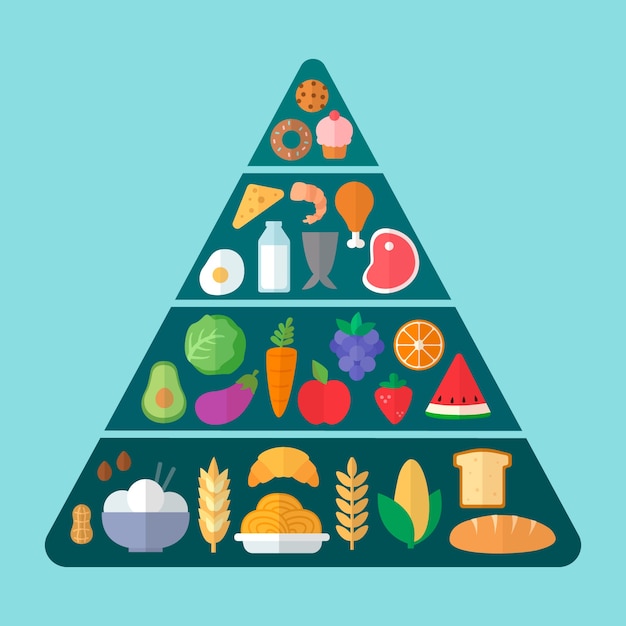Whether you're at your ideal weight or striving to succeed in your weight goal is it simply a matter of burning more calories than you're taking in? the solution, I suggest, is no! Overall body health improvement also as weight gain or loss must be factored into the equation otherwise you might be heading for problems. Correct nutrition can help to scale back the danger of a myriad of health-related problems, the foremost frightening of which are surely heart condition and cancer. Proper nutrition, however, entails eating many various foods, monitoring your consumption of some food and beverage items, and counting calories. Good diets offer balanced nutrition that reduces cholesterol, vital sign, and helps with weight control.
How Many Essential Nutrients are there?
Your body must have the right combination of nutrients:
Carbohydrates. they're the first source of ammunition in your diet. The body uses carbohydrates to create glucose which may be used immediately or stored in your body for later. an excessive amount of glucose, however, is stored as fat. There are two sorts of carbohydrates - simple and sophisticated. Sugars are simple carbohydrates. Starches and fibers are complex carbohydrates.
Proteins. Proteins help your body build and maintain muscles and other tissues. They also function within the creation of hormones. Like carbohydrates, excess protein is stored as fat.
Animal and vegetable are the 2 major sorts of proteins. an excessive amount of animal protein can cause high cholesterol because it is high in saturated fat.
Fat. Strange because it may seem; fat is another nutrient your body requires. It comes in both saturated and unsaturated forms. Saturated fat puts you in danger of health problems. Unsaturated fat is healthy, but if it goes through any sort of refinement process, it can become saturated fat.
Vitamins. These also are required nutrients. Different vitamins perform different tasks within the body. they will work with the metabolism to assist with energy levels for any task you'll consider that you simply need your body to perform. it's also been noted that certain vitamins can prevent disease.
For example, vitamins A, C, and E, also called antioxidants, can assist with the prevention of arterial blood vessel disease by keeping build up from occurring on artery walls. Vitamin B-1 is required for digestion and proper systema nervosum function. Vitamin B-2 is required for normal cell growth. Vitamin B-3 helps to detoxify your body. vitamin B and vitamin C assists with the production of red blood cells. vitamin D assists with the absorption of calcium. vitamin K helps your grume.
Minerals and trace elements. These are other nutrients your body requires. Both are utilized in many various body processes. Minerals like chlorine help make your digestive juices. Phosphorus helps build strong bones. Both are often found within the foods we consume, but with a chemical element, your body just needs a small amount. Salt is one final nutrient your body requires. you ought to not consume quite 2400 milligrams per day, though, because it might raise your vital sign.
Guidelines To make a balanced diet
You should follow several guidelines to make a well balanced, nutritional diet.
First, attempt to consume two and one-half cups of vegetables and two cups of fruit every day.
➔When making your selections for every day, make certain to settle on an honest variety. An honest rough guide is to eat as many various colors as possible, this may assist you to pick from all five vegetable subgroups a minimum of four-fold per week.
➔You should erode at least three ounces of whole-grain products every day.
➔A minimum of half your grain intake should be the whole grain-based.
➔Milk should even be a part of a healthy diet. Consume a minimum of forty-eight ounces of low-fat milk or milk products on a day today. Your total fat intake should only be between ten and thirty percent of your calories. Most of the fats you consume should be within the sort of unsaturated fats, as saturated fats can do much to wreck your health.
➔Meat, poultry, dry beans, and milk or milk products should all be lean, low-fat, or fat-free. but one-tenth of your calories should come from saturated fats, and you ought to always attempt to avoid trans-fatty acid.
➔Fiber-rich fruits, vegetables, and whole grains should be a daily a part of your diet as should potassium-rich foods. Alcoholic beverages should only be consumed carefully.
➔Excellent nutrition is the basis of a healthy diet.



Comments
Post a Comment